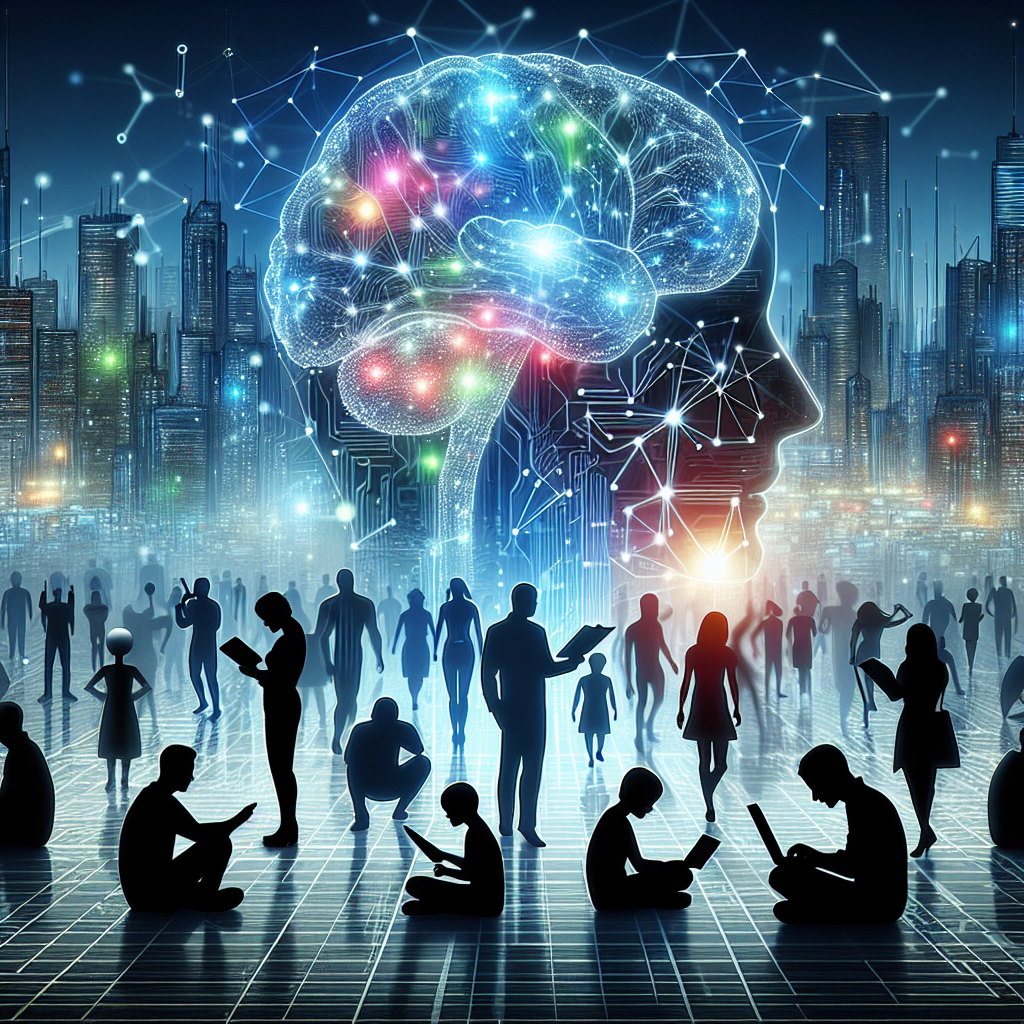Artificial General Intelligence (AGI) is the next frontier in artificial intelligence development. AGI refers to machines that have the ability to understand and learn any intellectual task that a human being can. This is in contrast to narrow AI, which is designed to perform specific tasks, such as playing chess or recognizing speech.
The potential impact of AGI on the human experience is vast and far-reaching. From healthcare to transportation, from education to entertainment, AGI has the potential to revolutionize every aspect of our lives. But with great power comes great responsibility. How will AGI shape our future, and what can we do to ensure that it benefits humanity as a whole?
In this article, we will explore the implications of AGI on the human experience, from its potential benefits to its ethical and societal challenges. We will also address some frequently asked questions about AGI and its impact on our future.
The Benefits of AGI
The potential benefits of AGI are vast and varied. One of the most exciting possibilities is the ability to solve complex problems that have eluded human understanding for centuries. AGI could help us unlock the secrets of the universe, cure diseases, and revolutionize industries such as agriculture, manufacturing, and energy.
In healthcare, AGI has the potential to revolutionize diagnosis and treatment. By analyzing vast amounts of medical data, AGI could help doctors make more accurate diagnoses and tailor treatments to individual patients. This could lead to faster recovery times, lower healthcare costs, and better outcomes for patients.
In education, AGI could personalize learning experiences for students, helping them reach their full potential. By adapting to each student’s learning style and pace, AGI could make education more engaging and effective, leading to higher levels of student achievement.
In transportation, AGI could revolutionize the way we get around. Self-driving cars, trucks, and drones could make transportation safer, more efficient, and more environmentally friendly. AGI could also help us optimize traffic flow, reduce congestion, and minimize accidents.
The Ethical and Societal Challenges of AGI
Despite its potential benefits, AGI also poses significant ethical and societal challenges. One of the biggest concerns is the impact of automation on jobs. As AGI becomes more advanced, it has the potential to automate a wide range of tasks currently performed by humans. This could lead to widespread unemployment and economic disruption, particularly for workers in low-skilled jobs.
Another concern is the potential for AGI to be used for malicious purposes. AGI could be weaponized by malicious actors to launch cyberattacks, spread disinformation, or carry out physical attacks. Ensuring that AGI is developed and used responsibly will be crucial to preventing such scenarios.
There are also concerns about the impact of AGI on privacy and security. As AGI becomes more advanced, it will be able to analyze vast amounts of data about individuals and make predictions about their behavior. This could raise concerns about surveillance, data privacy, and the misuse of personal information.
Finally, there are concerns about the impact of AGI on human relationships and society as a whole. As machines become more intelligent and capable of performing human-like tasks, there is a risk that they could replace human interaction and diminish the value of human relationships. Ensuring that AGI enhances, rather than replaces, human experience will be key to maximizing its benefits.
FAQs about AGI and the Human Experience
Q: Will AGI surpass human intelligence?
A: It is difficult to predict whether AGI will surpass human intelligence. While AGI has the potential to perform intellectual tasks more efficiently than humans, it is unlikely to replicate all aspects of human intelligence, such as creativity, emotion, and intuition.
Q: Will AGI take over the world?
A: The idea of AGI taking over the world is a common theme in science fiction, but it is unlikely to happen in reality. AGI will be developed and controlled by humans, who will be responsible for ensuring that it is used for the benefit of humanity.
Q: How can we ensure that AGI is developed responsibly?
A: Ensuring that AGI is developed responsibly will require collaboration between governments, industry, academia, and civil society. This includes developing ethical guidelines, establishing regulatory frameworks, and promoting transparency and accountability in AI development.
Q: What are the potential risks of AGI?
A: The potential risks of AGI include job displacement, economic disruption, malicious use, privacy concerns, and societal upheaval. Addressing these risks will require careful planning, collaboration, and foresight.
Q: How can AGI enhance the human experience?
A: AGI has the potential to enhance the human experience by solving complex problems, improving healthcare, personalizing education, revolutionizing transportation, and transforming industries. By harnessing the power of AGI responsibly, we can create a future that benefits all of humanity.
In conclusion, AGI has the potential to revolutionize every aspect of our lives, from healthcare to transportation, from education to entertainment. While the benefits of AGI are vast and exciting, it also poses significant ethical and societal challenges. By addressing these challenges responsibly and collaboratively, we can ensure that AGI enhances, rather than diminishes, the human experience. The future of AGI is in our hands – let’s make sure we use it wisely.

